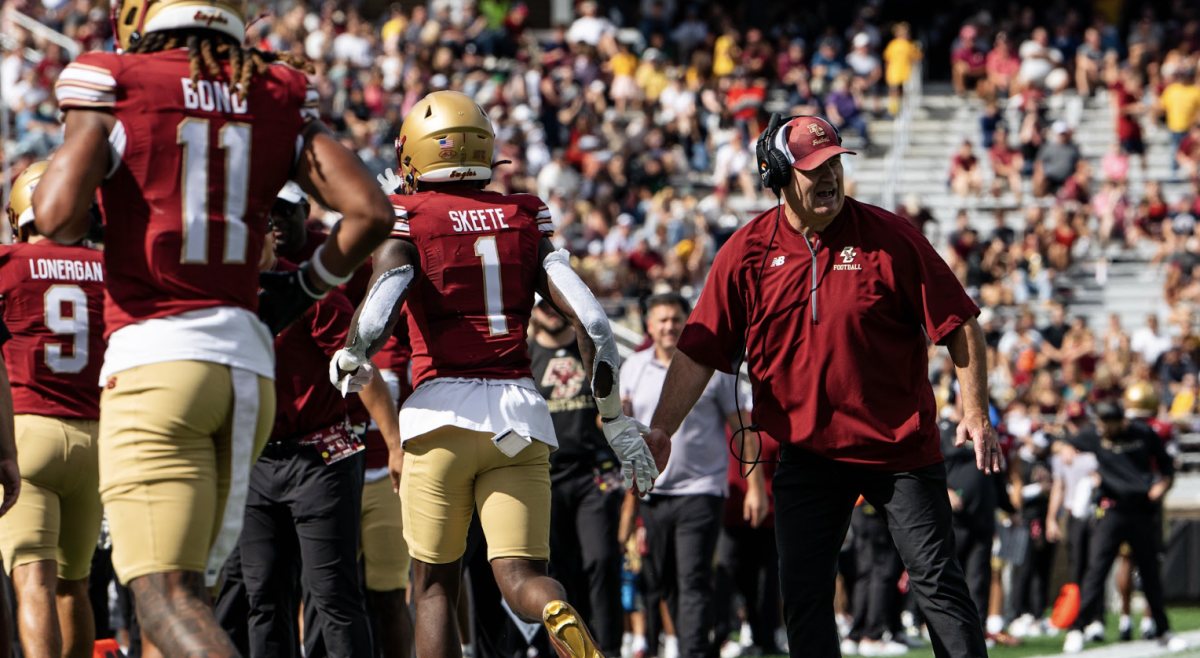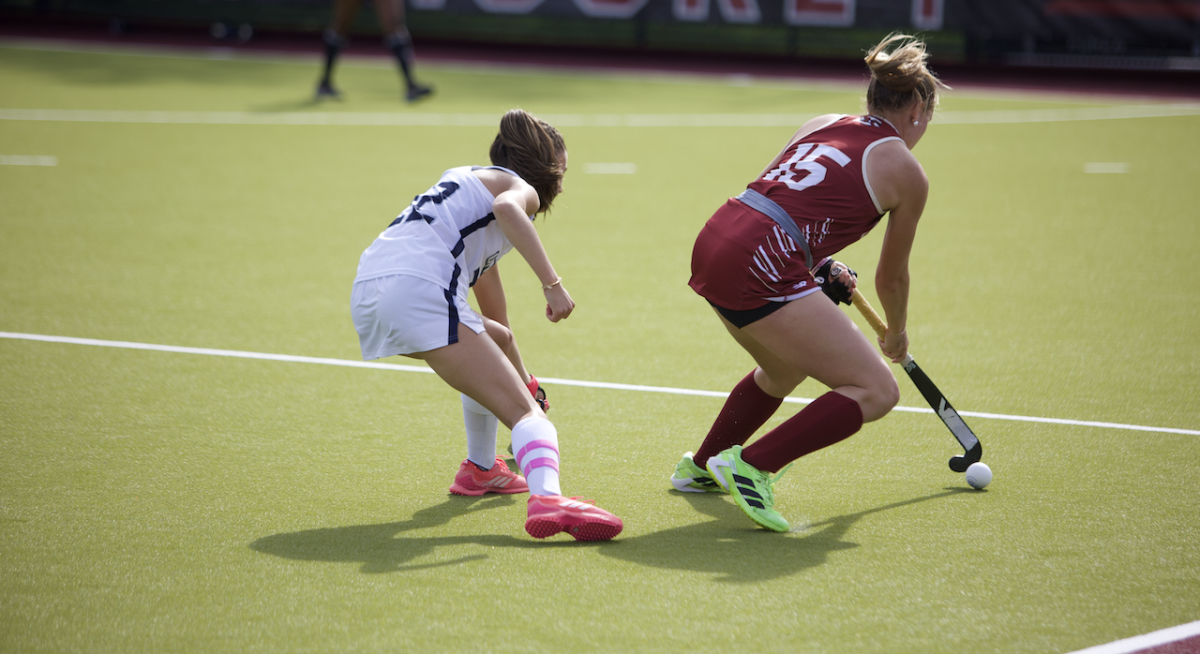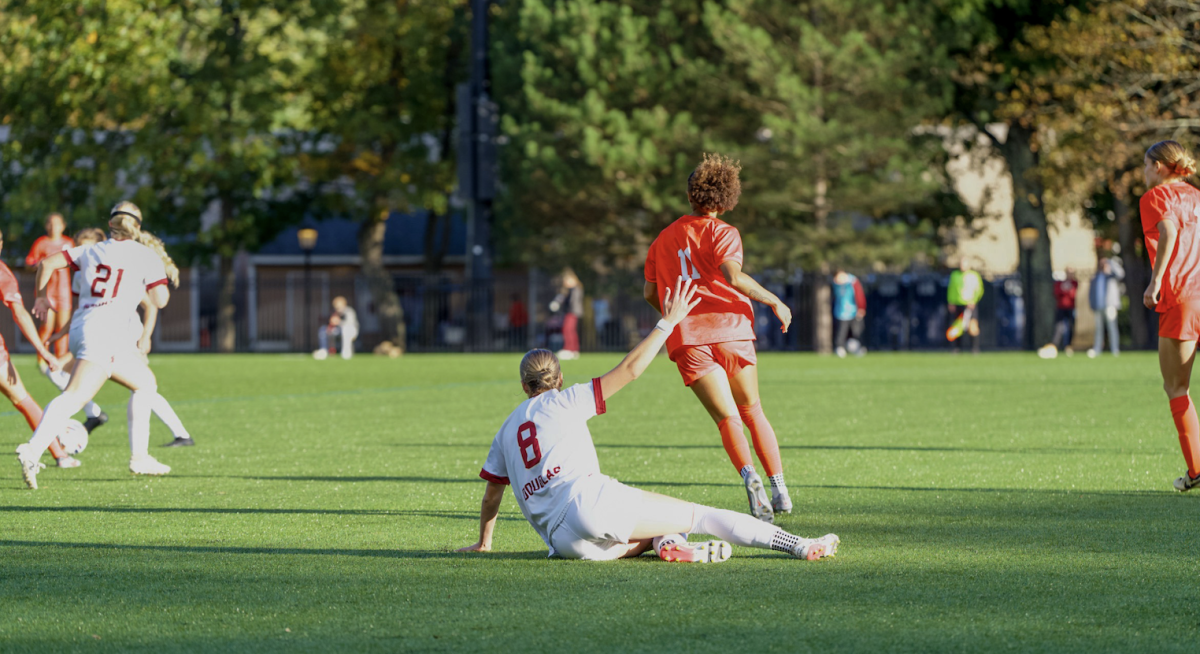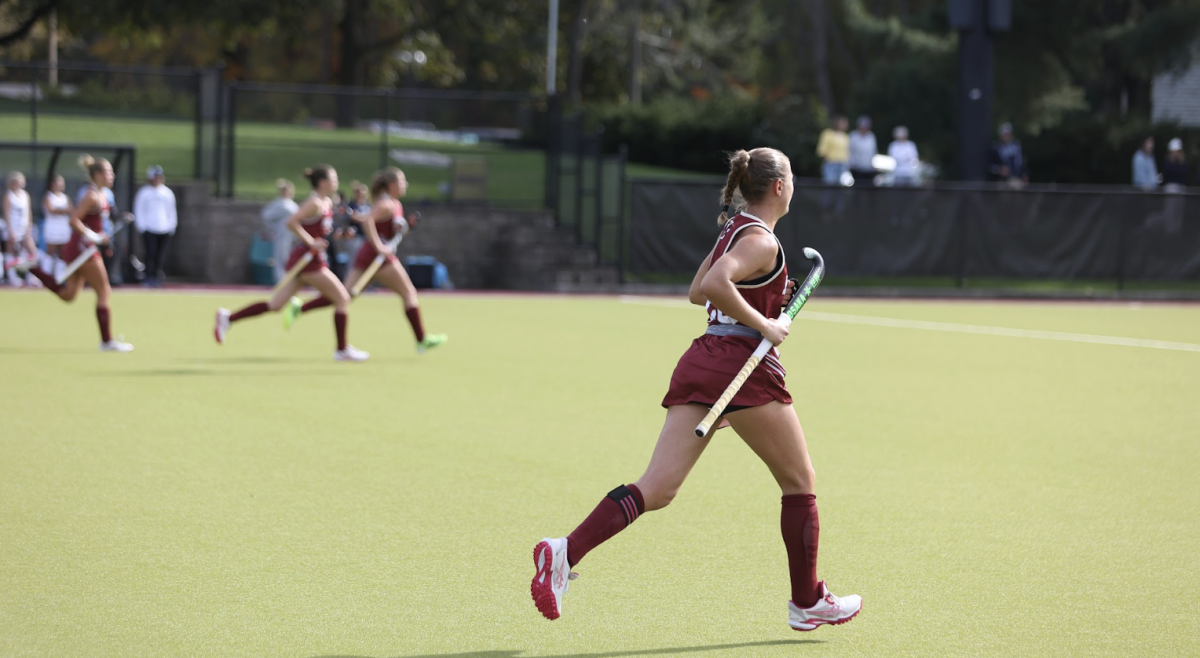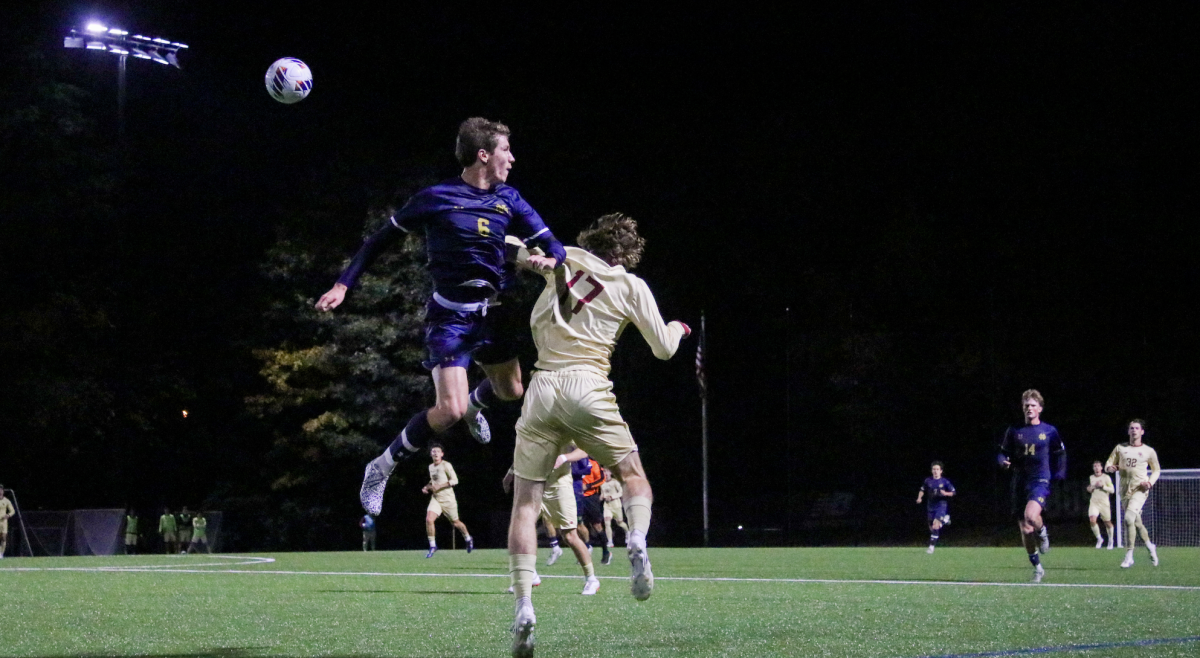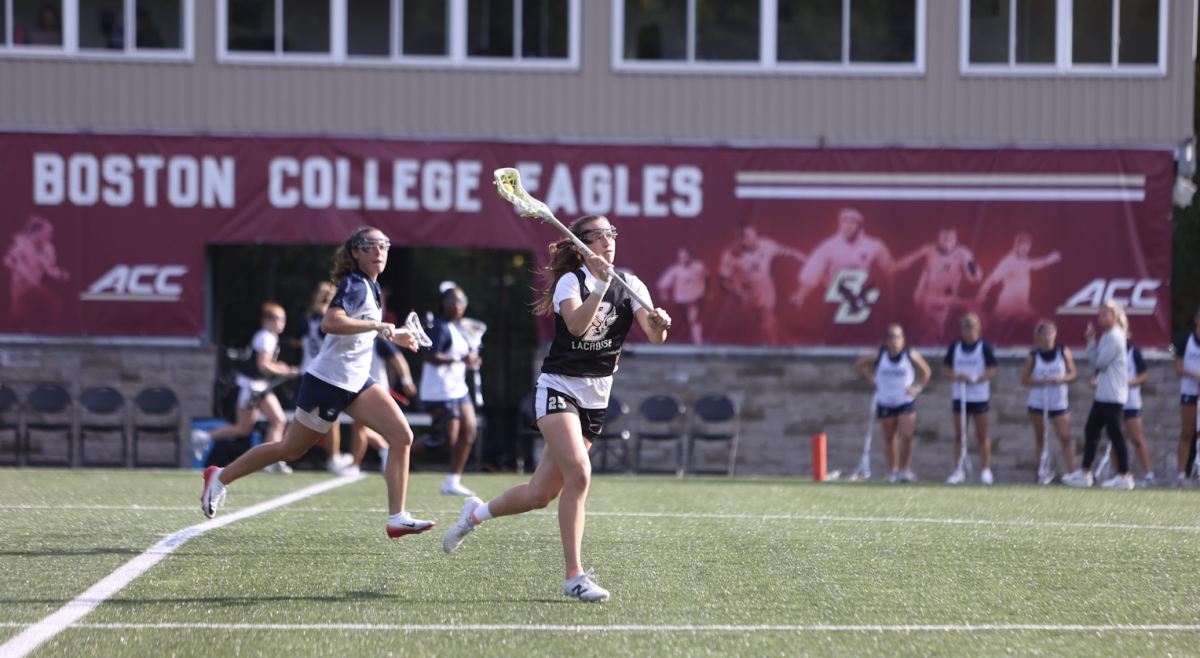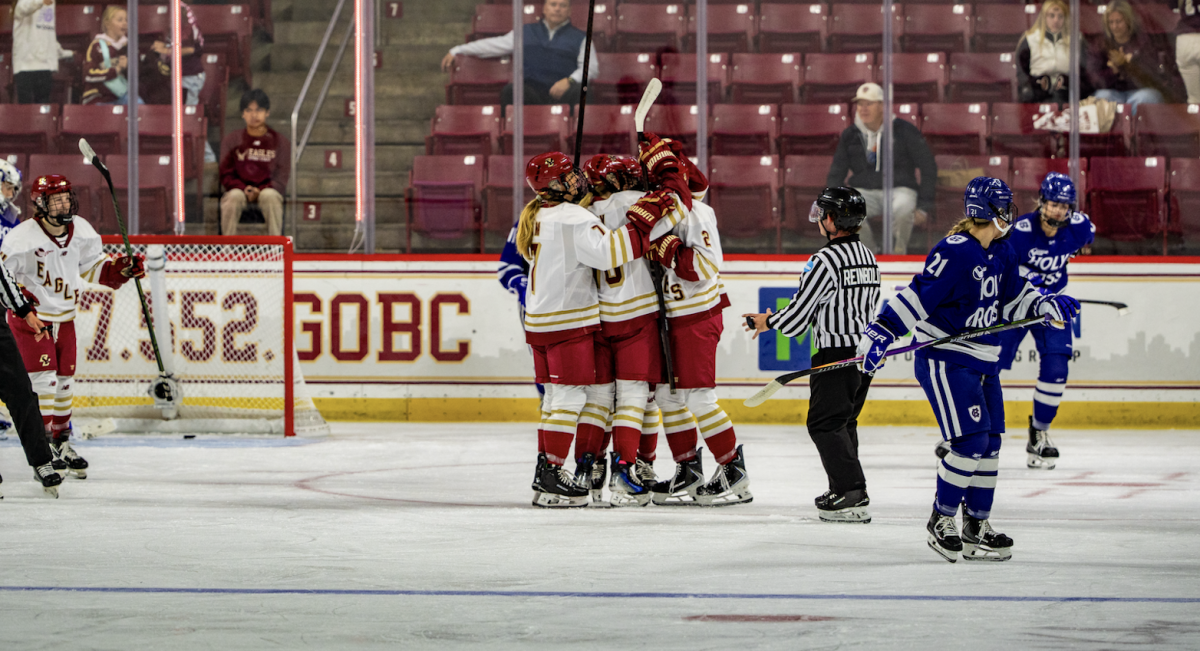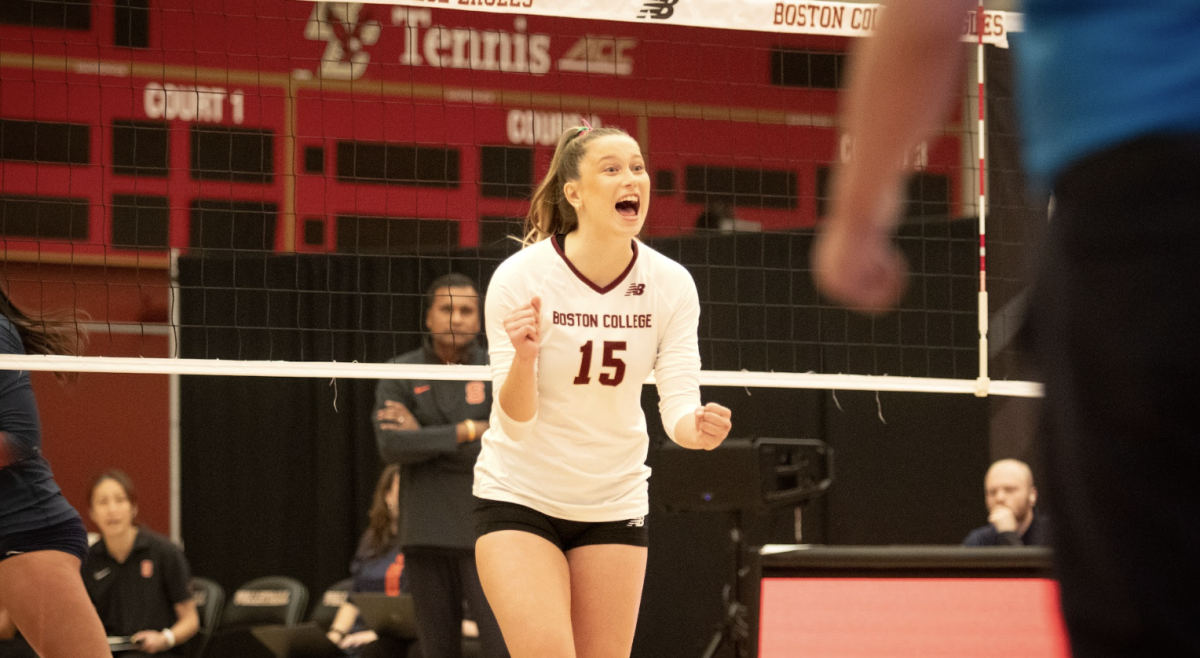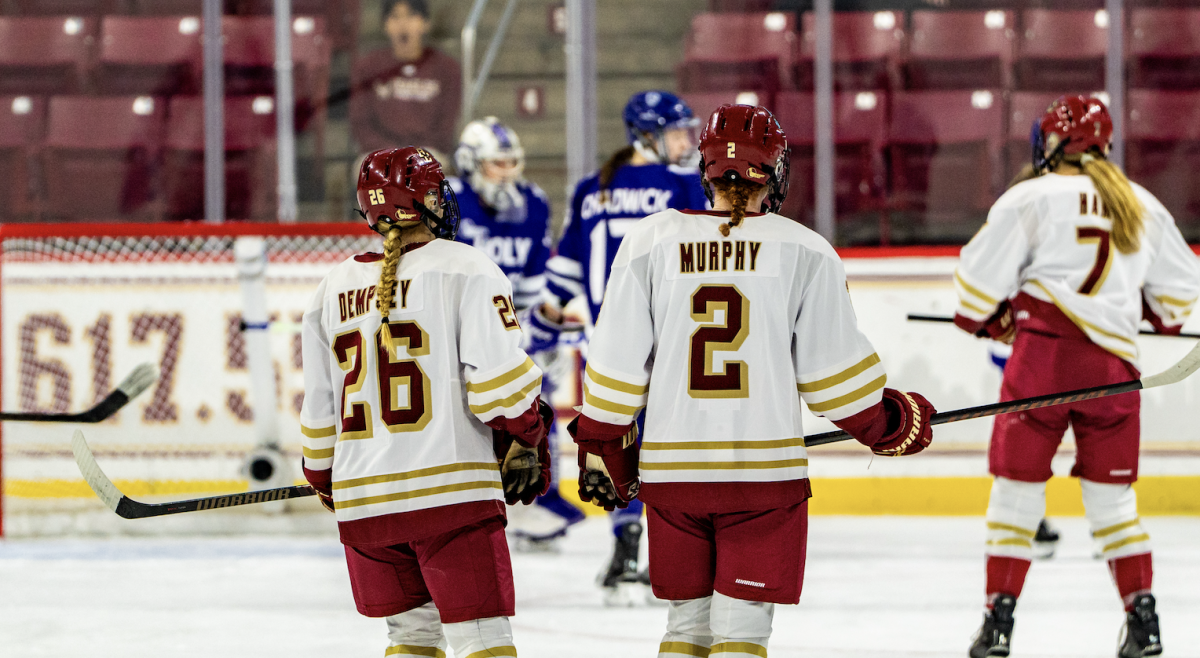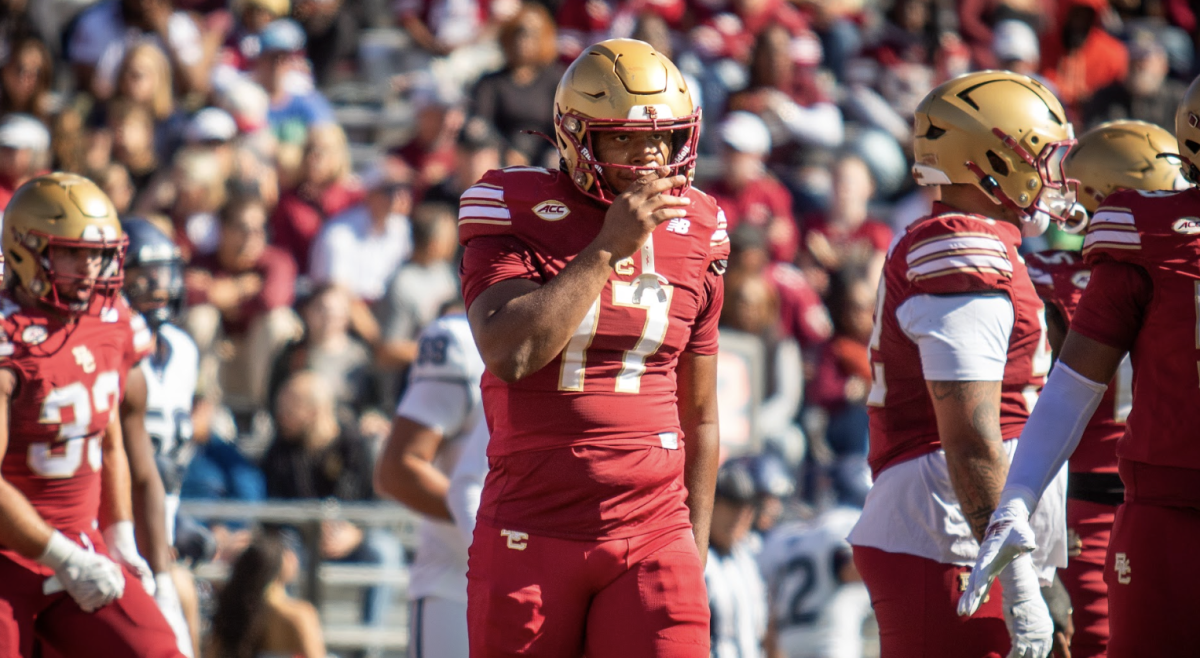While complying with safety guidelines set in place by the Atlantic Coast Conference, Boston College women’s soccer, volleyball, and field hockey are working feverishly in practice to get ready for the shortened season to begin.
In any other season—one without a COVID-19 pandemic—these three fall sports would have arrived in early August for preseason camp. Instead, the Eagles started practice during the first week of school—almost a month after some of their ACC competitors. According to field hockey head coach Kelly Doton, the lack of a preseason compared to the team’s ACC competitors has created the feeling of playing “catch-up” to the other schools.
“It’s impossible to say that we’d be as prepared as anyone we play,” said volleyball head coach Jason Kennedy. “That’s going to be very tough to rebound from. Preseason camp usually affords coaches the opportunity to conduct practices, workouts, and meetings with the attention of athletes undivided by the demands of schoolwork.”
With the ACC conducting only conference play this fall in field hockey, volleyball, and soccer, each of BC’s teams will open up with the most challenging portion of any season. Typically, non-conference play affords fall sports the opportunity to work out the kinks before the league slate.
“We utilize those games in September and early October to grow and watch film, and correct a lot of things tactically,” said Doton. “We don’t have that time this year.”
But at the same time, all three Eagles’ sports will have the opportunity to watch two full weeks of ACC games before they join the action. Women’s soccer, for example, will have two Notre Dame game films to watch before traveling to South Bend on Oct. 1.
“We have two weeks of watching other competitions to see what they’re about before anyone even sees us,” women’s soccer captain Mia Karras said.
Volleyball opens its season hosting Louisville on Oct. 2, and field hockey makes the trip down to face the Cardinals on Oct. 4.
The Eagles also enacted stringent protocols during practice to prevent the spread of COVID-19. Soccer managers sanitize balls and cones immediately after use, and volleyball staggers its arrival to practice to reduce density in the locker room. All athletes and coaches adhere to strict mask-wearing, according to team members.
“We’ve had to wear masks in all our sessions, which has been a huge adjustment with such a cardio-demanding sport,” Karras said.
With many athletes’ home gyms closed for much of the summer due to the pandemic, coaches and trainers phased the Eagles back into full play so as to avoid injuries. Doton and women’s soccer head coach Jason Lowe both instituted “weaning-in” periods, starting off practices closer to 50 percent effort and ramping up to get to full capacity. Even so, trying to avoid virus transmission during practice makes it so that simple drills and activities can give athletes and coaches pause.
“We were going to train some heading, and normally we just grab a bunch of balls and serve them up,” Lowe said. “And then you’re thinking about all the contact points, touching all the soccer balls, contact with their heads, and the sweat. So maybe you don’t want to do that.”
In addition to precautions on the field and in the gym, athletes are keenly aware that being identified in contact tracing efforts means time away from their sport.
“The players know other student athletes that have had to quarantine,” Doton said about her team. “They’ve done a phenomenal job making sure that when they’re away from field hockey that they’re in a mask.”
As of Thursday, according to coaches, neither women’s soccer nor volleyball has recorded a positive case. Doton did not report numbers for field hockey when asked. Even so, during such a short season—each team will play about eight ACC games over a four-week season—a positive test or contact trace to the team could be devastating.
“If someone gets knocked out with this for 14 days, in a four-week season they’re going to be knocked out for half of it,” Kennedy said.
Kennedy is currently working 10 new freshmen into the program—a group that comprises almost half the team—so he said he welcomes the opportunity to have a shorter fall season as somewhat of a trial run.
“We have to view this as an opportunity to get ready for the spring, not so focused on the wins and losses here in the fall,” he said.
But without preseason scrimmages or non-conference games, Eagles across all fall sports won’t know where they stand until the heat of conference rivalry.
Featured Image by Bridget Clark / Heights Staff


